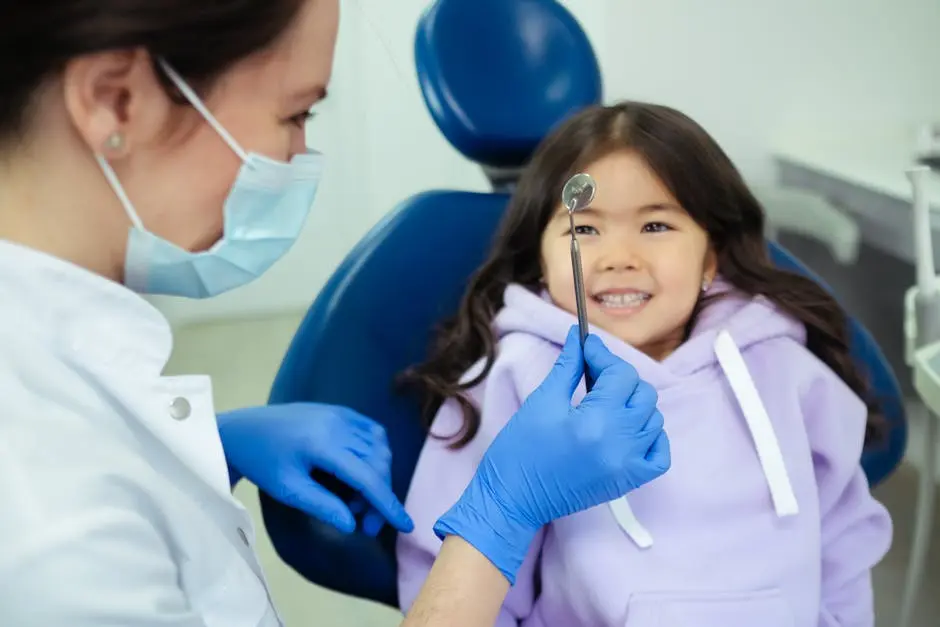When it comes to children’s dental care, there are a lot of misconceptions that can leave parents confused and worried. Pediatric dentistry is a specialized field that focuses on the dental needs of kids, but many myths persist about what this care involves. In this post, we’ll demystify ten common myths surrounding pediatric dentistry, ensuring you have the accurate information you need to keep your child’s smile healthy and bright.
1. Kids Don’t Need to Visit the Dentist Until They’re Older
Many parents believe that dental visits can wait until their children are much older, but the reality is that early dental check-ups are crucial for preventing future problems. Establishing a dental home by the age of one can set the stage for a lifetime of good oral health. Pediatric dentists use this time to monitor growth and development while identifying potential issues before they become bigger problems. Regular appointments create a comfortable environment for your child, reducing anxiety for future visits.
Moreover, early visits can catch issues like tooth decay, which can affect your child’s overall health. The earlier you start, the better equipped you are to teach your child about good oral hygiene habits. Remember, the foundation for a healthy smile starts young!
2. Baby Teeth Aren’t Important
Some think that because baby teeth will eventually fall out, they don’t need special care. However, healthy baby teeth are essential for proper speech development and the alignment of adult teeth. They play a crucial role in how your child eats and speaks. Additionally, if baby teeth are neglected, it can lead to significant problems as permanent teeth start to grow in.
This also includes establishing good oral hygiene habits early in life. Taking care of baby teeth can ensure that kids understand the importance of taking care of their mouths as they grow. Ignoring baby teeth can contribute to dental problems that may need to be addressed much later, making proper care vital.
3. Sugar Is the Only Cause of Cavities
While sugar is a major contributor to cavities, it’s not the only factor. Poor oral hygiene and a lack of regular dental visits also play significant roles. It’s a common misconception to solely blame sugar when, in fact, the interplay between diet, oral hygiene, and genetic factors can cause tooth decay.
By focusing on not just sugar intake but also a comprehensive approach to dental care, parents can help reduce the risk of cavities. Encourage your children to brush and floss regularly, and make dental check-ups a routine part of their health regimen!
4. Fluoride Is Dangerous for Children
Despite some misconceptions, fluoride is safe and effective in preventing cavities. It helps strengthen developing teeth, but it’s important to use it in appropriate amounts. The benefits of fluoride for children’s dental health cannot be overstated. By reinforcing tooth enamel, fluoride reduces the risk of decay significantly.
That said, monitoring fluoride exposure is important, especially for children. Consult with your pediatric dentist to find the balance needed for your child’s oral health. The message is clear: fluoride is a friend to healthy smiles, not a foe!
5. Dental Work Is Always Painful for Kids
Pediatric dentists are specially trained to make dental work as comfortable as possible for children, utilizing techniques and anesthesia to minimize any discomfort. Children’s needs differ from those of adults, and experienced pediatric dentists understand how to create a less intimidating environment.
This can range from the way they communicate to the tools they use. Many modern procedures are quick and, more importantly, effective. The notion that dental visits equal pain can lead to anxiety in children, but when they are informed about the process clearly and positively, it can help dissolve that fear.
6. Children Can’t Get Gum Disease
It’s a common belief that gum disease is only an adult issue. In truth, kids can develop gum disease, especially if they have poor oral hygiene. Gingivitis, the earliest stage of gum disease, can occur even in young children, and it’s important to address it early on.
Educating kids about brushing their teeth properly and flossing can lay the groundwork for healthier gums as they grow. Awareness is the key; knowledge about gum health should start early to prevent problems later in life.
7. You Only Need to Brush Once a Day
Many parents think that brushing once a day is sufficient. However, brushing twice daily is crucial for preventing cavities and ensuring healthy gums. By making this simple habit a part of your child’s daily routine, you help them understand the importance of maintaining oral hygiene.
Additionally, brushing at night removes the plaque and bacteria that accumulate throughout the day, while morning brushing freshens their mouth for the day ahead. It’s an easy strategy that yields tremendous benefits when it comes to long-term dental health.
8. Orthodontic Work Is Not Needed Until All Permanent Teeth Come In
Early evaluation by an orthodontist can help identify issues before all permanent teeth have erupted, allowing for timely intervention. Many issues can be corrected more easily if caught early, making a visit to the orthodontist during pre-teen years a smart choice.
Kids develop at different rates, and some may require braces or other orthodontic work earlier than others. Consulting with a specialist can prepare you for any necessary treatments down the road, ensuring your child’s smile stays healthy.
9. Dental Sealants Are Unnecessary
Some parents may not see the value in dental sealants, but they provide a protective barrier that can greatly reduce the risk of cavities on molars. Sealants fill in the grooves and pits in teeth where food can easily get trapped, leading to decay.
This preventative measure is quick and painless, making it an excellent investment in your child’s oral health. By properly educating yourself on the benefits of sealants, you can make informed decisions that promote long-lasting dental health.
10. All Pediatric Dentists Are Alike
Not all pediatric dentists offer the same care. It’s important to find one that aligns with your child’s needs and has a friendly, welcoming environment. Just as every child is unique, every dental clinic has its own vibe.
Take time to research and visit different practices. A good pediatric dentist will know how to handle your child’s specific dental needs while also ensuring that your child feels safe and comfortable during visits.
At the end of the day, the right pediatric dentist can make a significant difference in your child’s perception of dental care, fostering a positive relationship with healthcare that can last a lifetime.















